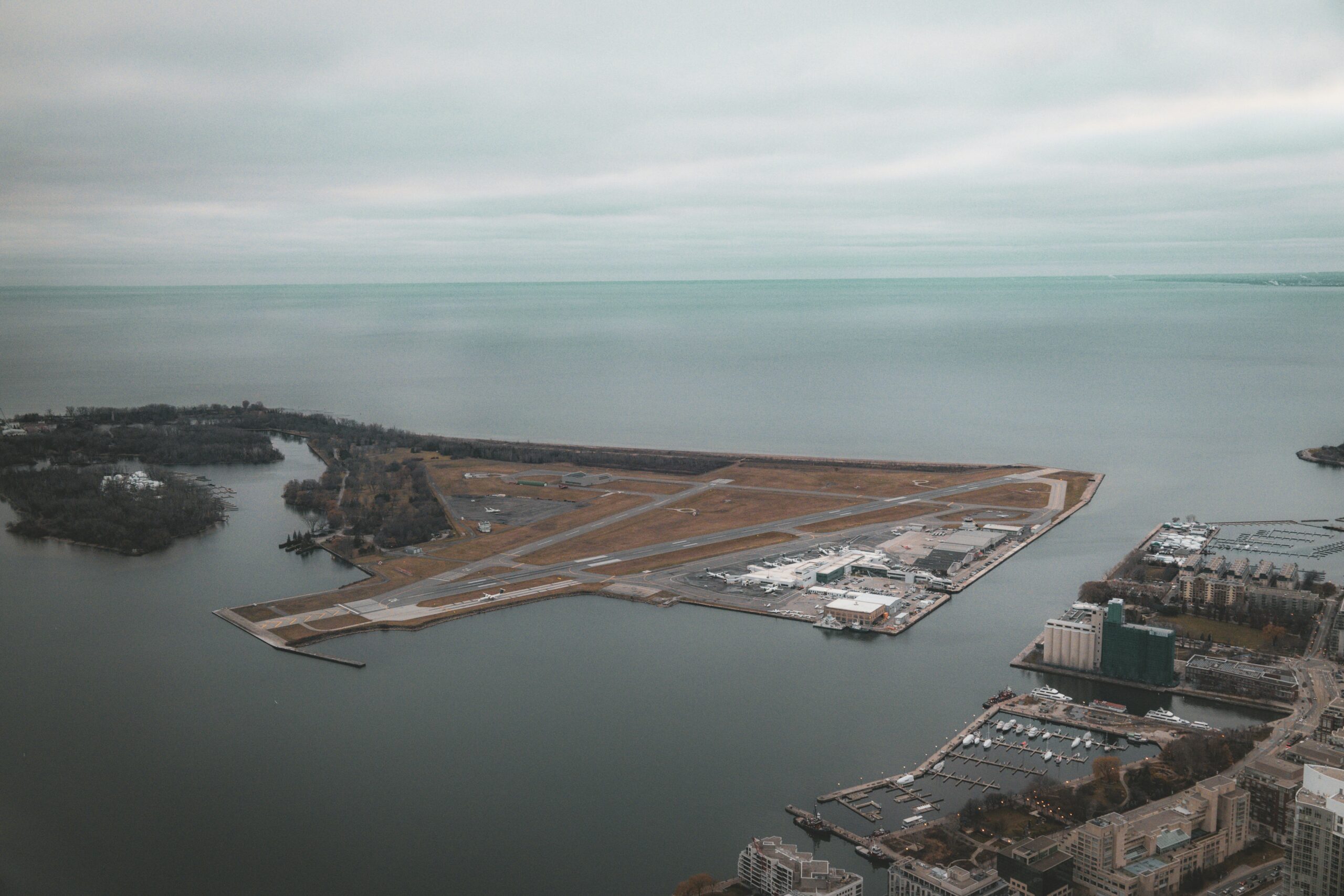Air Transat will open a direct link between Toronto Pearson and Istanbul on 6 December 2025. The carrier says the flight will run every Tuesday and Saturday, all year, and will use its Airbus A330 wide-bodies. The move inserts Air Transat into a market that has lacked a second Canadian operator for more than a decade. According to industry sources, the interline deal signed the same day with Turkish Airlines gives the project an instant network boost.
The distance, roughly 5,080 miles, will set a new range record for the Montreal-based leisure carrier. This comes as other airlines pursue even more extreme long-haul links, such as the world’s longest one-stop flight launched by China Eastern via Auckland. Our analysis shows the block time will sit near nine hours eastbound and just over ten hours westbound, within A330 performance margins. Air Transat will load both −200 and −300 variants according to seasonal demand, with a two-class cabin that tops out at 346 seats.
Defense officials confirm the company chose Tuesdays and Saturdays to balance crew rotation and slot access at Istanbul Airport. That pattern also helps travelers plan short breaks or two-week stays without awkward lay-over days. Air Transat expects fast transfers at Toronto thanks to its joint venture with Porter Airlines, which brings feed from Halifax, St. John’s, Ottawa, Montreal, and Western Canada.
Istanbul Airport matters. It ranks among the world’s busiest hubs and sits at the fork of three continents. Turkish Airlines reaches more than 340 cities from that base. The interline lets a single ticket carry a Toronto passenger to points in the Middle East, Central Asia, and Africa. Checked bags move automatically, and missed-connection protection applies across both carriers. According to industry sources, that convenience factor weighed heavily in Air Transat’s route decision.
Demand signals look solid. Government data show two-way Canada–Türkiye traffic hit about 330,000 passengers in 2024, up 12 percent year-on-year. Toronto–Istanbul held the largest slice at roughly 131,000. Yet only four in ten flew nonstop, which points to ripe, unserved volume. Visa-free entry for Canadians since 2024 raised leisure appeal, while a Turkish diaspora of at least 75,000 in Canada keeps family travel stable through the calendar.
The interline reduces financial risk. Launching a long-haul spoke without feed often sinks yields in winter. By tapping Turkish Airlines’ global spread, Air Transat captures fifth-freedom flows that would never consider Toronto as an end point. That includes traffic from Central Asia and East Africa seeking North-American ties. Our analysis shows even a modest load of 40 connecting passengers each way can turn a marginal winter leg profitable.
Competition exists. Turkish Airlines already flies Istanbul–Toronto six times each week with 777-300ERs. Biman Bangladesh touches Istanbul on a Dhaka-Toronto routing but sells few local seats. Air Transat enters as a lower-cost leisure specialist, not a full-service rival, so fare buckets will differ. That mix could grow the total market instead of splitting the same customers.
Operational factors matter too. The A330 fleet carries a common pilot rating and fits existing hangar slots at Pearson. Crews can run the round trip inside a single duty cycle with a controlled rest, easing hotel costs. Maintenance planning benefits from a slow winter schedule elsewhere that frees airframes for the Turkish run. According to industry sources, Air Transat engineered its winter rotations around that fact.
Cargo rides in the belly. Each A330 offers about 15 tonnes after bags. Perishables, e-commerce parcels, and automotive parts move steadily between Ontario and Türkiye’s industrial belt. Freight forwarders told our team that a year-round link will shave at least 24 hours off current routings that hub through Frankfurt or Doha. That speed widens the revenue base and cushions passenger swings.
Regulatory clearance was straightforward. Bilateral entitlements between Canada and Türkiye allow designated carriers to add seats without fresh diplomatic talks. Ottawa classifies Istanbul routes as open-skies up to seven weekly frequencies per airline, and Air Transat stays well under that cap. Transport Canada accepted the slot filings on 18 June 2025.
Visa changes gave the final push. Canadians can now enter Türkiye for 90 days within 180 days without a fee. That policy, effective 1 January 2024, cut trip friction and sparked a spike in bookings handled by Canadian tour operators. Defense officials confirm Air Transat saw Istanbul package queries triple inside twelve months.
Sustainability questions persist in long-haul. Air Transat counters with blended-winglet upgrades and sustainable aviation technologies, including a rising share of sustainable aviation fuel at Pearson. Our analysis shows the A330-200 burns about 5 percent less fuel per seat than the 777-300ER that Turkish Airlines flies on the same route, though it carries fewer passengers. The company also offsets crew travel through a forestry program launched in 2023.
Revenue management will rely on mixed segments. The airline plans four principal pools:
- Canadian leisure travelers booking Istanbul city breaks.
- VFR traffic serving the Turkish community in Toronto, Montreal, and Vancouver.
- Turkish Airlines connections bound for Asia, Africa, or the Gulf.
- Tour operator blocks packaged with hotel stays along the Turkish coast.
Targeted pricing should keep each segment insulated from the others and reduce yield dilution.
Our analysis shows the timing of the launch is smart. December travel includes holiday returns and early winter tourism. By March, connecting flows to Southeast Asia climb as shoulder-season fares drop. Summer then pulls diaspora traffic. This rolling wave diversifies load factors across the year.
Crew training started in early May. Pilots will run route-proving sims that replicate Istanbul’s busy three-runway environment and GPS-based south approaches. Cabin staff study cultural briefs on halal catering and Turkish service norms. According to industry sources, the in-flight menu will feature a joint dish created with Turkish Airlines’ DO & CO catering arm.
Airport infrastructure also shapes the plan. Istanbul’s midfield terminal uses contact gates sized for A330s. A fresh baggage system, opened in 2024, cuts mis-sort rates to below one per thousand. That figure beats European hubs and reassures a carrier handing bags to an interline partner.
Financial discipline remains key. Air Transat will not base crews in Türkiye. Lay-overs sit under 28 hours, allowing duty time resets without local housing. Ground handling goes to Turkish Ground Services under a three-year contract. Billing is in euros, hedged at 1.47 CAD per EUR until mid-2026.
The airline’s wider network strategy shows a pattern: add long, thin transatlantic links backed by partnerships. Berlin and Valencia joined the map this month with the single-aisle A321LR, while Istanbul uses a wide-body to capture higher demand. Each route fills a distinct niche, so the schedule avoids internal cannibalization.
Defense-Aerospace data models suggest a break-even load factor near 73 percent, assuming a blended yield of CAD 0.12 per seat-kilometer and cargo at CAD 0.18 per kilo. That threshold drops a point if sustainable fuel credits flow in at planned levels.
The Canadian public gains a direct door to Türkiye’s cultural and business scene. Exporters shorten supply chains. Travelers skip crowded European hubs. The Turkish side gains fresh North-American feed into its flagship carrier. Both governments also see stronger people-to-people ties, a stated objective in recent bilateral communiqués.
Risks still exist:
- Exchange-rate swings could lift operating costs.
- A surge in competing capacity would pressure yields.
- Geopolitical shocks in the region might dampen demand.
- Extended supply-chain delays could ground an A330 and cut frequencies.
Air Transat plans mitigations, such as wet-lease options and fuel hedges, yet these threats sit outside its full control.
Defense-Aerospace will track milestones: ticket sales, load factors in the first quarter, and on-time performance through the first winter storm cycle. Early data will show if the commercial logic holds. For now, the pieces align: market demand, aircraft match, feed partnerships, and regulatory room.
REFERENCE SOURCES
- https://www150.statcan.gc.ca/n1/en/catalogue/2310025601
- https://www.airtransat.com/en-CA/news/new-route-to-istanbul
- https://aviationweek.com/air-transport/airlines-lessors/air-transat-launch-istanbul-route-signs-interline-turkish-airlines
- https://www.travelmarketreport.com/canada/air/articles/air-transat-to-launch-toronto-istanbul-route-grows-partnership-with-turkish-airlines
- https://www.travelweek.ca/news/airlines/air-transat-to-fly-year-round-non-stop-from-toronto-to-istanbul/
- https://www.paxnews.com/news/airline/air-transat-unveils-toronto-istanbul-flights-turkish-airlines-partnership
- https://aviacionaldia.com/en/2025/06/air-transat-launches-direct-route-between-toronto-and-istanbul-and-forms-alliance-with-turkish-airlines.html
- https://www.newswire.ca/news-releases/air-transat-announces-non-stop-route-between-toronto-and-istanbul-and-a-partnership-with-turkish-airlines-to-enhance-connectivity-877675381.html


